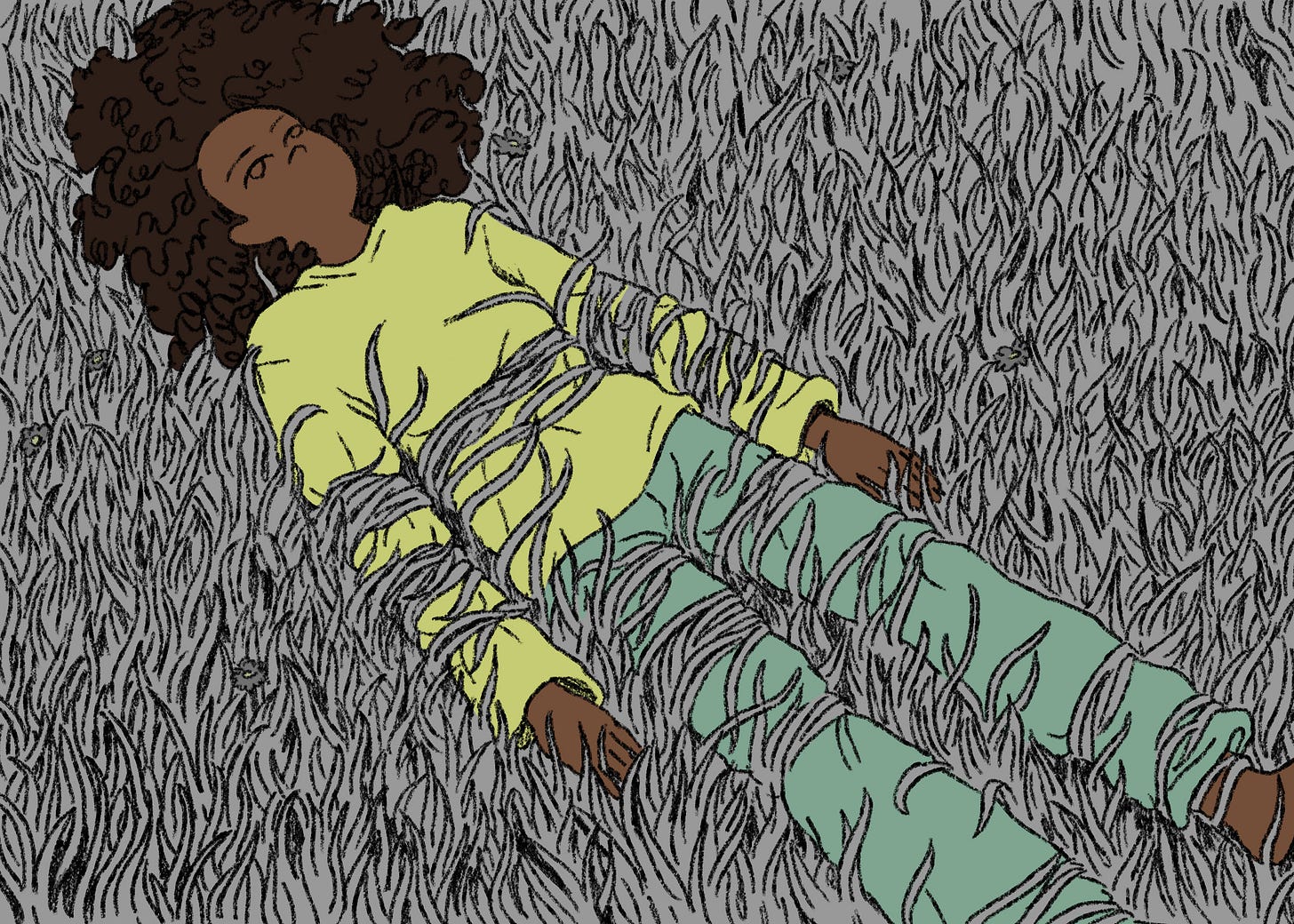Depression
Mental health
Hey all,
Welcome to Human Nature, the illustrated psychology newsletter.
When we think of psychology, mental health is probably the first thing that comes to mind. This makes sense given the ubiquity of mental health problems. According to the World Health Organisation, 1 in every 8 people around the world is affected by a mental disorder. Therefore, I think it is about time we covered this topic.
Today’s post is the first in our series on mental health disorders. Our topic this week is depression.
Depression
What it is: Depression is a mood disorder characterised by persistent anhedonia (loss of the ability to feel pleasure) and low mood. It affects the individual on the level of the body, emotions, thoughts and behaviours.
Common symptoms include: insomnia or oversleeping, low energy, loss of appetite or over-eating, negative thinking (helplessness, guilt, thoughts of being a failure or disliked), anhedonia, rumination, anger and irritability, inability to enjoy previously pleasurable activities and thoughts about death.
How it works: Although we don’t know for sure what causes depression, we can say that it is a combination of genetic, environmental, biochemical and psychological factors. Depression runs in families, with children of depressed parents being 40% more likely to develop it themselves ( Rice et al., 2002). We know that brain biochemistry plays a role, as depression is linked to an imbalance of mood related neurotransmitters serotonin and noradrenaline.
Several psychological models of depression have been proposed over the years. One of the earlier models was Seligman’s (1975) learned helplessness model. After discovering that rats who were exposed to an uncontrollable shock stopped trying to avoid the shock in subsequent experiments, Seligman inferred that humans can also learn helplessness from past experiences. Abramson et al. (1978) suggested that some of the negative thought patterns in depressed patients are linked to an attributional error; instead of attributing negative events to external circumstances, patients overwhelmingly blame themselves.
Beck’s cognitive model is probably the most widely accepted model of depression. According to this model, latent negative self-beliefs (schemas) resulting from prior experiences become re-activated by internal or external events , which in turn bias cognition and promote negative thoughts about the self, the world and the future. Beck and Bredemeier (2016) have more recently suggested that depression is an adaptive response to “the perceived loss of an investment in a vital resource such as a relationship, group identity, or personal asset.”
Treatment: The most common treatments for depression currently are medication and psychological therapy. However, although anti-depressants are shown to be more effective than placebo for severe depression, they aren’t for mild or moderate cases. Furthermore, 40% of people don’t respond to antidepressants, and once the patient stops taking medication there is a high risk of relapse (Fournier et al., 2010).
Cognitive Behavioural Therapy or CBT has been shown to be just as effective as anti-depressants and with a much lower rate of relapse (Rush et al., 1977). It is a structured form of psychotherapy that teaches the patient to identify and respond to dysfunctional thought and behavioural patterns. Other forms of psychotherapy include: Mindfulness Based Cognitive Therapy, Interpersonal Therapy, Dialectical Behaviour Therapy, Acceptance and Commitment Therapy.
Thank you for reading, see you next time.
If you are struggling with your mental health, please seek the advice or support of your GP. You can call the Samaritans 24/7 for free emotional support: 116 123. If you are having thoughts of suicide, call 999.
Sources:
Depression (Chand & Arif, 2023. National Library of Medicine).
Learned helplessness in man (Miller & Seligman, 1975. Journal of Abnormal Psychology).
Mental disorders (World Health Organisation, 2022).
Thinking and Depression: II. Theory and Therapy. (Beck, 1964. Archives of General Psychiatry).




Harika olmus, Selincim. But seriyi merakla izleyecegim 👏👏😘